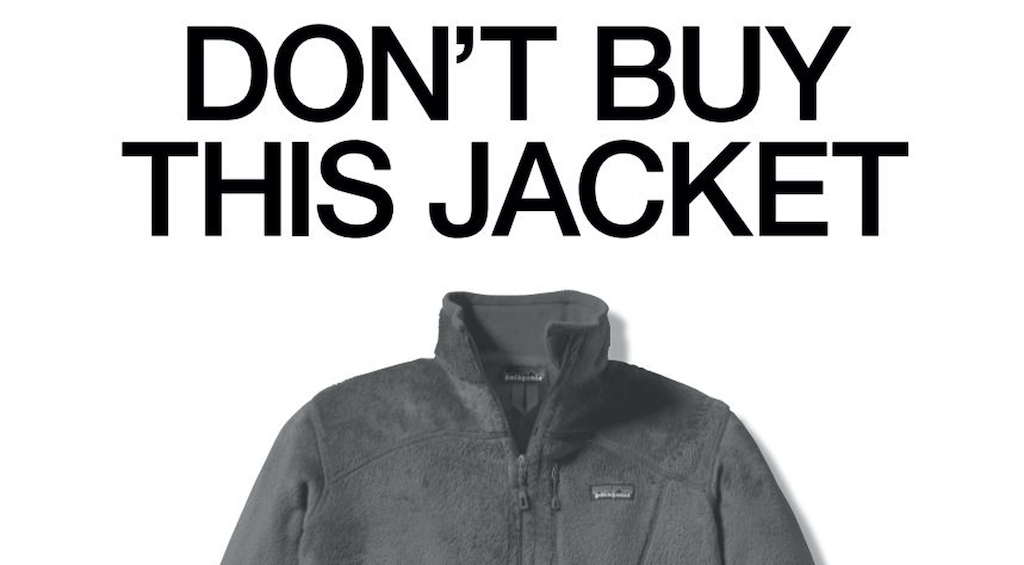Value-Led Recruiting: Patagonia’s Purpose Mission Attracts 9,000 Applications Per JD (Including Interns)
4 Mins Read
Patagonia, the famed outdoor apparel brand known for its green credentials and do-good mission, is attracting the top talent amongst younger generations. In a recent speech at Columbia Business School, the brand’s CEO Rose Marcario shared that Patagonia now receives around 9,000 applications for every single open internship and full-time position, and that those who join the team hardly think about leaving. It’s an eye-opener to the future of business – where companies are expected to place the planet and people above profit in order to be successful.
Diving into the reason behind Patagonia’s extraordinarily competitive hiring, Marcario said in her speech that it’s pretty simple. “When you do work that’s good for the world, people want to be part of it.”
Attracting talent in today’s day and age – where companies must not only respond to conscious consumerism but also build employee engagement in order to lead an effective team – will require demonstrating authentic action and meaningful investment into problems that go beyond the balance books, such as social and environmental issues. In short, consumers want to spend and employees want to work for a company that is purpose-driven.
Read: Patagonia founder Yves Chouinard says ‘capitalism will lose its customers’

Patagonia itself is a great representative of what a purpose-driven brand looks like. On the environmental front, the company is a certified B Corporation, which means that it is subject to regular assessment and auditing of their business practices and impact on their employees, community, environment, suppliers and governance. They’re also founding members of the 1% For The Planet movement, a nonprofit initiative committing brands to donate at least 1% of their sales to credible environmental charities.
Even their public messaging adds to their green credentials, perhaps most famously with their “do not buy this jacket” advertisement that encouraged consumers to reduce consumption and buy only what they need. In the company’s blog post explaining the rationale behind the viral ad, they said “it would be hypocritical for us to work for environmental change without encouraging customers to think before they buy.”
Read: Special report – 10 ways millennials & Gen Zs are changing what & how we buy
Ultimately, Marcario said that all their environmental investments and actions – including the highly risky move to sue the federal government to protect public lands – has paid off for Patagonia as a brand. Beyond widespread media attention, the CEO says Patagonia is able to reinforce the loyalty of their customer base and of course, attract incoming talent from the younger generations of millennials and Gen Zs who are far more value and principle-led compared to their predecessors when it comes to their everyday choices, whether it be their careers or purchases.
The latest data backs this. In a 2016 study, over two-thirds of millennials cited “making a difference” as a crucial point to consider when choosing a job, and that they would expect the company they work at to have values aligned with their own. This has only become more clear in the wake of nationwide social upheaval against racial injustice in the U.S. triggered by the death of George Floyd, which has seen even the biggest conglomerates face a reputational crisis over their discriminatory record – with some of the most outspoken figures being their own employees, whether current or former.
And of course, it means that simply pledging allegiance to the environmental movement is hardly enough for brands to last.
Read: No more branded fleece vests for non-mission aligned firms, says Patagonia
Take sustainable fashion darling Reformation’s founder Yael Aflalo, for instance, who recently stepped down from her role as CEO after multiple former employees of the company accused Aflalo of racist behaviour and exposed the company’s long-standing exclusionary culture.
Meanwhile, Patagonia, with its long history as a leader in social responsibility, has further cemented its reputation in the wake of nationwide Black Lives Matter protests, announcing its US$100,000 donation to the NAACP Legal Defense Fund and pulling out of Facebook advertising over the platform’s decision not to remove a controversial post by U.S. President Donald Trump. Before this, the brand’s Action Works platform has promoted voter turnout groups, especially amongst marginalised communities, and has released a short documentary titled District 15, which focused on the intersection of environmental and racial injustices, centring on the lives of youth activists fighting oil drilling activities within communities of colour in Los Angeles.
To add to the brand’s authentic purpose-driven mission, they’ve invested in their employees social wellbeing to top it off as one of the most desirable places to work at. Having onsite childcare at their offices for 36 years is no doubt just another tick on the checklist to prove its dedication to social and gender equality, yet another reason driving their 9,000 applicants per role figure.
Lead image courtesy of Patagonia / designed by Green Queen Media.




